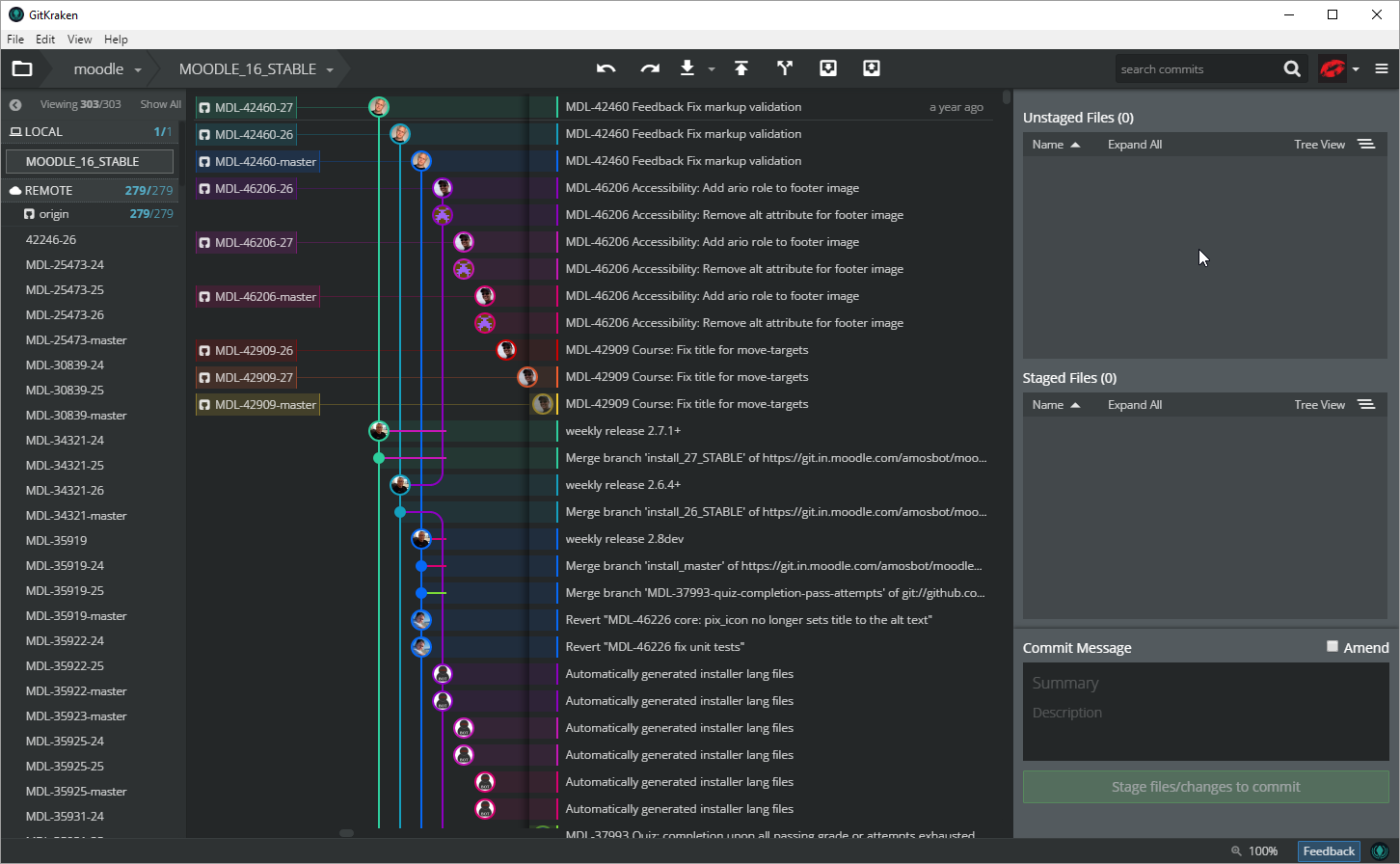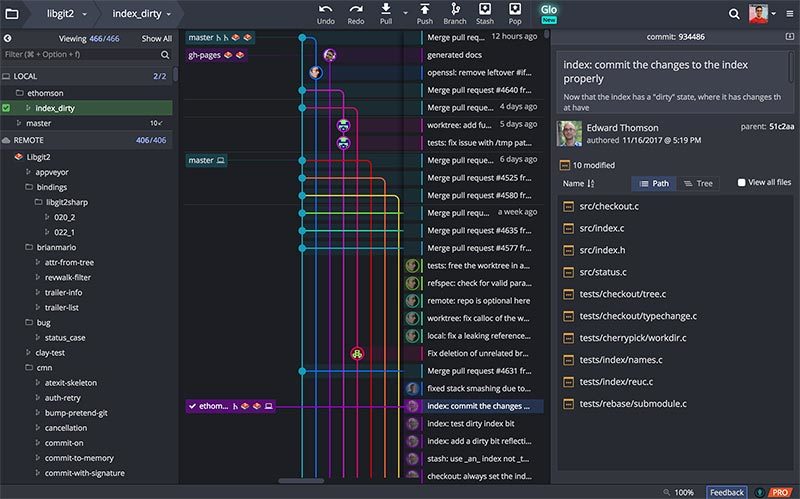
I was building a personal project that I needed to store items in a real time database. * Integrations - #githubmarketplace gives you an essence to have multiple and competitive integrations whereas you will find less in the GitLab.

GitHub, on the other hand, seems to be more restrictive when it comes to export features of existing GitHub repositories.
#GITKRAKEN M1 HOW TO#

Authentication stages - With GitLab you can set and modify people’s permissions according to their role.
#GITKRAKEN M1 SOFTWARE#
You might have to add the command to some sort of setup file which is run at boot, because it seems like the ssh agent doesn't remember the key (at least for me).A bit difference in GitHub and GitLab though both are Version Control repository management services which provides key component in the software development workflow.Ī decision of choosing GitHub over GitLab is major leap extension from code management, to deployment and monitoring alongside looking beyond the code base hosting provided best fitted tools for developer communities. For more information see the GitHub Help Page about adding SSH Keys. The command adds the ssh key to the git agent. (you might have to replace that with the path of the key you are using).
#GITKRAKEN M1 UPGRADE#
What is causing ssh -vT to fail in this case, and why doesn't it prevent git push/pull but fails when GitKraken tries pushing?įor me this was caused by an upgrade to OSX Sierra. The following command suggests that ssh tool tries rsa private key, but is rejected: $ ssh -vT ĭebug1: Offering RSA public key: /home//.ssh/id_rsaĭebug1: Authentications that can continue: publickeyĭebug1: Trying private key: /home//.ssh/id_dsaĭebug1: Trying private key: /home//.ssh/id_ecdsaĭebug1: Trying private key: /home//.ssh/id_ed25519ĭebug1: No more authentication methods to try. So far I have checked several things: ssh -T įingerprint of id_rsa.pub matches to a key existing in Github account. The URL of the repository point to my new username.

I can also push from inside Eclipse, and via command line without error.

Unselecting the option reveals proper private/public key pair located at ~/.ssh/id_rsa Please confirm that it is properly associated with your git provider. I have recently changed my GitHub username and when I try to push with Authentication > Use local SSH agent selected, GitKraken push fails with following error: Push Failed


 0 kommentar(er)
0 kommentar(er)
